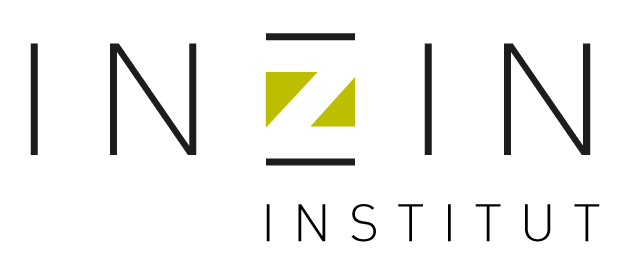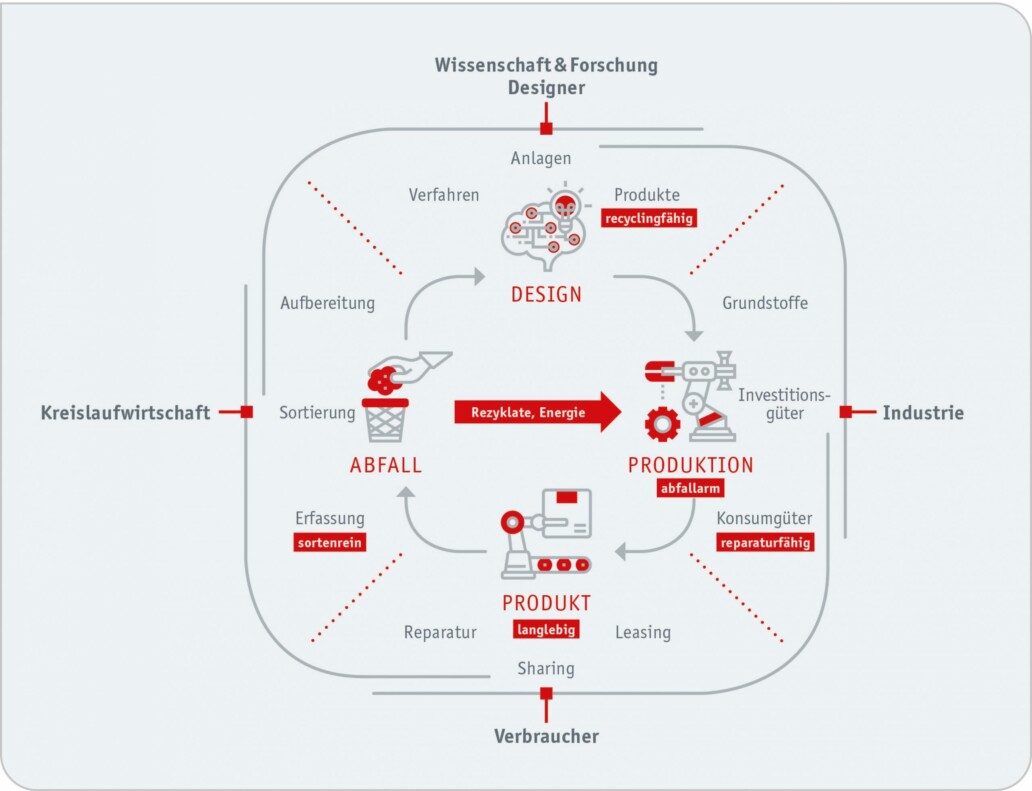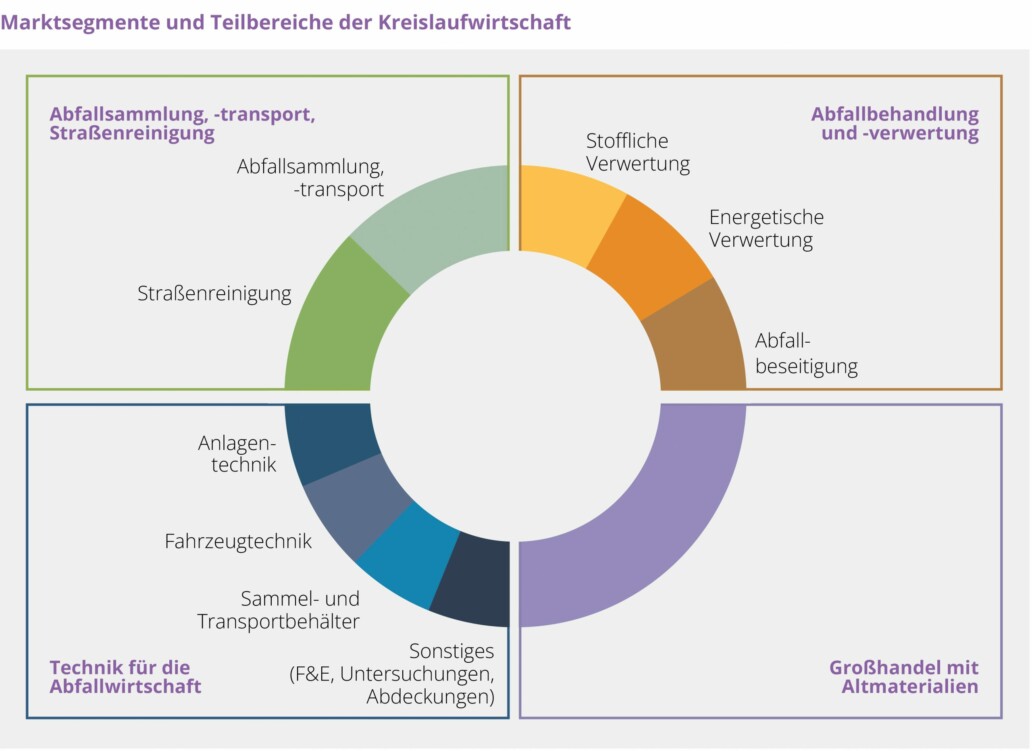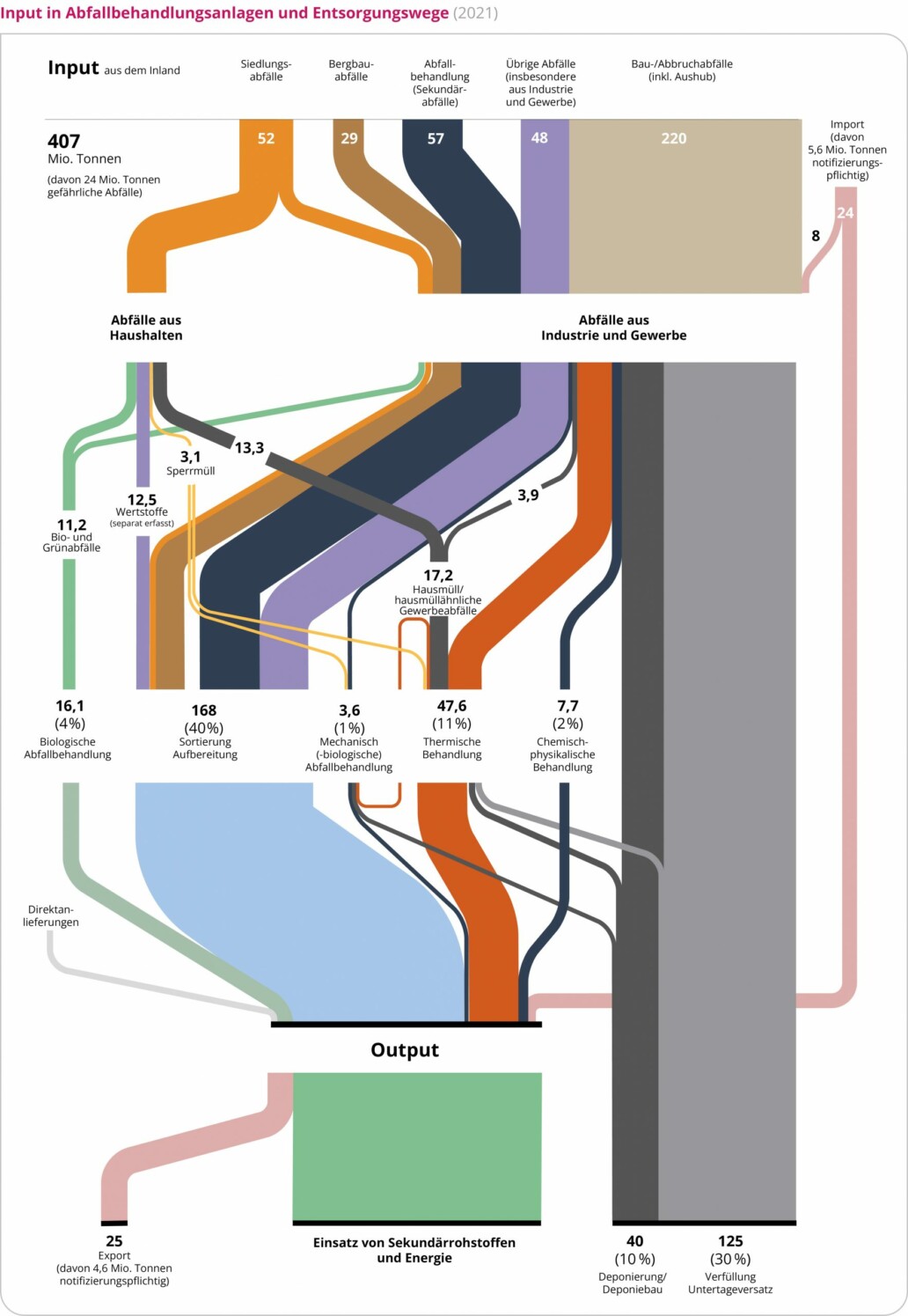Status report on the German Circular Economy 2024
Circular economy is more than just classic waste management.
Objectives:
The “Status Report on the German Circular Economy” of 25.01.2024 was commissioned by 14 associations and IFAT, the world’s leading trade fair for the environmental industry, and was compiled by Prognos AG in cooperation with INFA GmbH and the scientific advice of Prof. Dr. Martin Faulstich and examines the current situation of the industry for the third time after 2018 and 2020.
The new edition provides an up-to-date, comprehensive and broadly coordinated overview of the organizational structures, volumes, capacities, economic relevance, innovative capacity and future economic and social challenges facing the circular economy in Germany. The report thus provides valuable information about the current and future tasks, achievements and goals of the industry to politicians and the business community, as well as the media and interested experts.
Publisher:
ASA, BDE, BDSAV, BDSV, BRB, bvse, DGAW, IFAT Munich, IGAM, InwesD, ITAD, VDMA, VHI, VDM, VKU
Editors:
Prognos AG
INFA GmbH
Scientific advice:
Prof. Dr. Martin Faulstich
Partners:
Breer visuelle Kommunikation
TafelMitKollegen
Results
The view of the circular economy has changed in recent years. The industry’s ability to perform and adapt was demonstrated during the coronavirus pandemic. The systemic relevance for the economy and society was demonstrated in two ways. Russia’s war of aggression against Ukraine has also shown how heavily Germany is dependent on energy and raw material imports and how quickly disruptions in supply chains can lead to problems.
Waste management can make an important contribution to reducing these dependencies both by recycling raw materials and by recovering energy from waste.
In addition, the status report shows:
- The circular economy is a growing industry: in 2021, the circular economy achieved a turnover of around 105 billion euros. Today, the sector employs almost as many people nationwide as the energy industry and almost four times as many people as the water and wastewater industry.
- The circular economy is international: The German circular economy has been an important player in international trade in plant, machinery and secondary raw materials for many years.
- The circular economy is innovative: start-ups develop innovative recycling technologies, offer products as services to extend their lifespan or create platforms for the exchange and reuse of products.
- The circular economy is popular: surveys on the most respected professions and the public’s reaction during the coronavirus pandemic show that waste workers, who are responsible for collecting and transporting waste, are held in high regard by the population. With 70 percent approval, this profession is in seventh place of all occupational groups according to a survey conducted by the German Civil Servants’ Association in 2022.
- The circular economy is an employer: With around 310,000 employees in Germany, the circular economy is one of the most important employers in the Green Economy sector – and the trend is rising. The jobs are systemically relevant, secure and are becoming increasingly versatile and demanding due to the increasing technologization and digitalization of the industry.
- The circular economy means conserving resources: Natural resources are the basis for the manufacture of products. Many are only available to a limited extent, which is why their protection is of particular importance. The aim of the circular economy is to significantly reduce resource consumption and decouple it from population and economic growth.
- The circular economy is climate protection: according to the national greenhouse gas inventory, emissions in the waste management sector have fallen by 75 percent since 1990, from 38 million tons of CO2 to 4.3 million tons in 2022. Many investments in technical and organizational optimization continue to reduce or avoid greenhouse gas emissions.
- Recycling waste is one of the central components of the circular economy, an EU-wide strategy for adapting the linear economic model.



